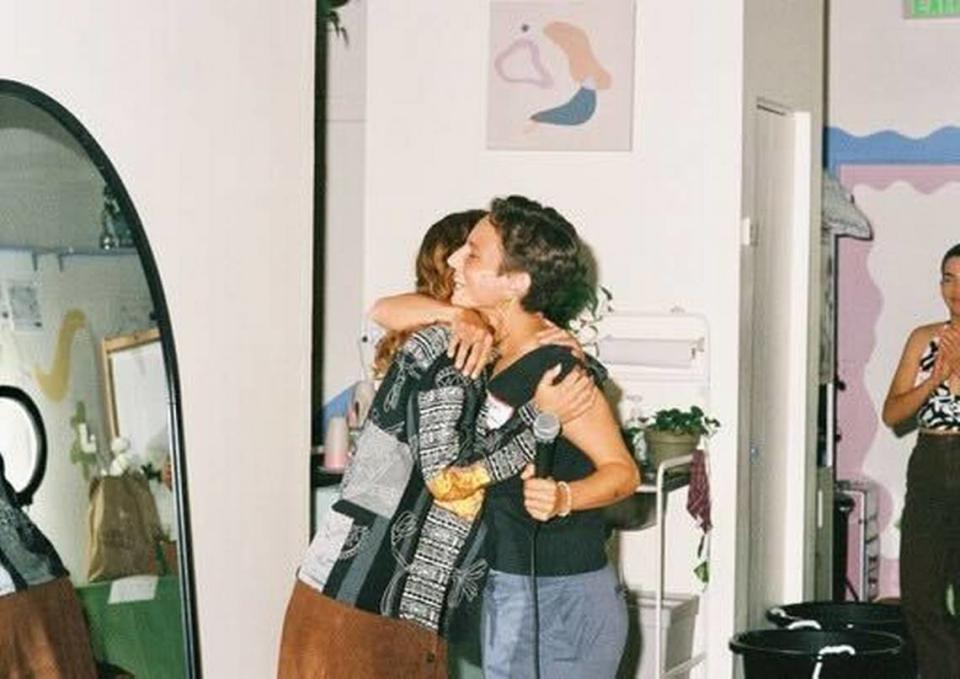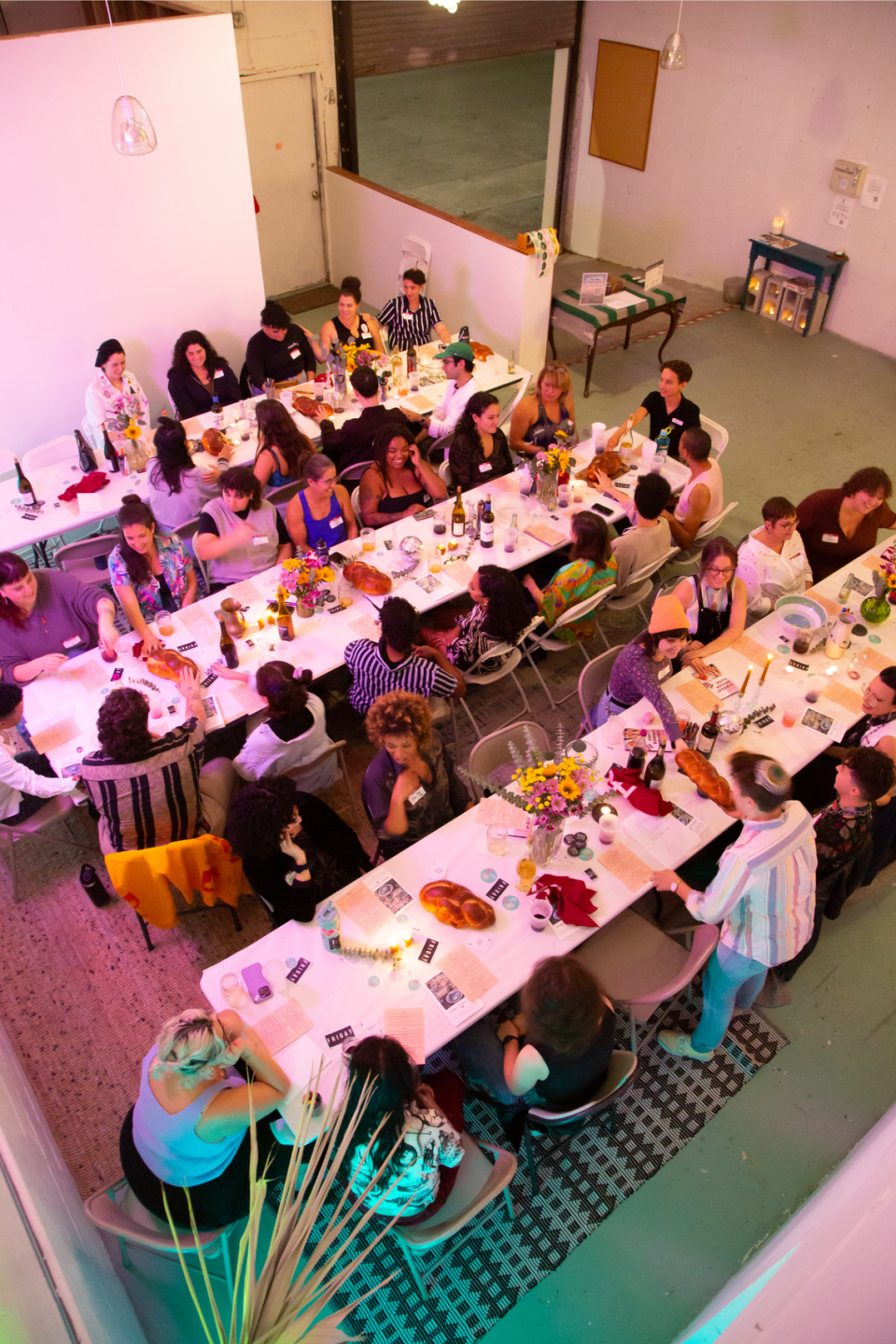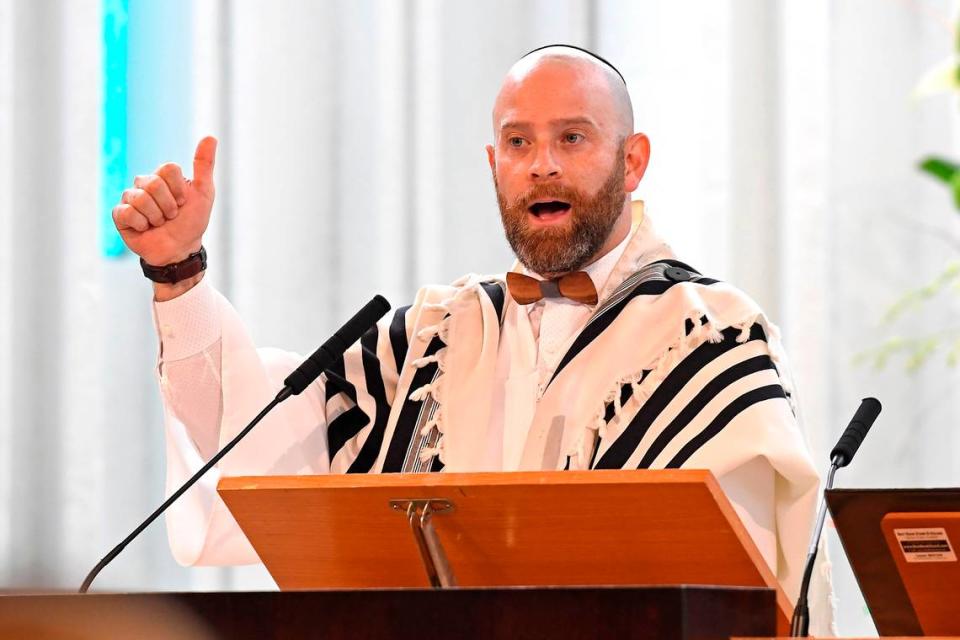‘You cannot be Jewish alone.’ Jewish leaders reach out during Rosh Hashana to young people
Rabbi Judith Lazarus Siegal cannot stress enough, especially around the Jewish High Holy days, the importance of being a part of a Jewish community.
“You really cannot be Jewish alone,” said Siegal, the senior rabbi of Temple Judea, a Reform synagogue in Coral Gables.
Anyone can read about Judaism on the internet and learn about the details of a Jewish ritual — lighting the Shabbat candles, hearing the sound of the shofar during Rosh Hashana — but it’s not until someone joins a temple or synagogue that they can have a deeper understanding of what it means to be Jewish, she said.
“But if you can come into the synagogue, feel a part of it, hear the music, smell the challah baking, have somebody shake your hand; those are all literal touch points and sensory experiential aspects of being Jewish,” Siegal said.
This year, Temple Judea, along with the Greater Miami Jewish Federation and other groups, are focused on reaching out to those who don’t regularly attend services, underscoring what it means to be a part of a congregation at a temple or synagogue.
“We’ve been doing a lot of learning about how we can do a better job in the Jewish community of welcoming people, whether they’re of the LGBTQ-plus families or families with physical disabilities or mental health issues, also Jews of color, or interfaith families,” Siegal said. “We want to make sure that they know that our home is your home; this is your Jewish home.”

Beginning Friday at sundown, Jews across South Florida will celebrate Rosh Hashana, which means “head of the year” or “first of the year” and is considered one of Judaism’s holiest days. The holiday marks the beginning of the 10 Days of Awe, or a period of repentance and reflection that leads up to Yom Kippur, the Day of Atonement.
Rabbi Siegal’s sermon will address some of the problems going on in the world — conflicts in Israel, the environmental crisis, the epidemic of loneliness, to name a few. It’s a lot to cover, but the holiday requires introspection of the past year in order to move forward.
“Rosh Hashana is a new year. It’s not like the secular new year, which is just a pure celebration. It’s really reflective,” Siegal said. “It’s very much about turning inward and thinking about how we can each as individuals be better and do better and mend the relationships that are broken.”
For those in Miami who may not be a member of a temple or synagogue, the Greater Miami Jewish Federation and the Rabbinical Association of Greater Miami are making sure every member of the Jewish community has somewhere to go for the holidays. The Federation’s High Holiday Welcome Program connects people to seats at a High Holy Day service, free of charge.
“We’ve found that sometimes people just haven’t found where they want to belong,” said Michelle Labgold, chief planning officer at the Federation. “Sometimes, people have an issue with with affordability.”
Reaching out to young people
More and more, young adults are finding alternatives to practice religious rituals they find meaningful — without belonging to a house of worship.
OneTable, for example, is a national social dining platform that helps young adults in their 20s and 30s host or attend Shabbat — a Jewish Day of Rest beginning at sundown Friday with a Shabbat dinner and continuing until sunset Saturday. The tradition acknowledges the importance of rest in making the world a better place.
“I think we see a lot of pressure being put on young adults,” said Naomi Davis, senior field manager of the Miami OneTable chapter. “We’re so plugged into technology. We are feeling the pressure in our jobs, in our social circles and Shabbat is a reminder to take a deep breath and create a night that feels nourishing and fulfilling to you.”
You don’t have to be familiar with Shabbat, or even Jewish to use OneTable’s resources — which include guides such as “Queer Shabbat,” “Sober Shabbat,” and extra funding, which they call “Nourishment,” of up to $10 per person that hosts can spend on dinner.
“We really believe that no matter who you are and what you believe, Shabbat is just plain good for you,” Davis said.
For Friday’s Rosh Hashana celebration, 725 dinners are taking place across the country using the OneTable model, with 7,600 people in attendance.

The Tribe also offers a bridge to people who may be struggling to connect to their Jewish faith. Their model — which has been around for 15 years — finds ways to weave the rich traditions of Judaism into things that people already enjoy doing.
“There are a lot of people who say, ‘I’m not religious’ but what they mean is that they’re not observant Jews,” said Tribe Rabbi Joanne Loiben, who also serves as a rabbi at Temple Beth Sholom in Miami Beach. “Maybe they don’t follow all of the rules of Jewish law. But they actually really enjoy having religious experiences. They feel connected on a spiritual level, and also on a communal level.”
Much of the Tribe’s programming, including “Shabbat After Dark,” marketed with the tagline, “This isn’t your parent’s Shabbat!” is aimed at a new generation of Jews, who may not yet be a member of a synagogue.
In past years, many of the Tribe’s events took place away from temples, such as the Sacred Space in Wynwood, but this year, the Tribe is moving to Temple Beth Sholom.
“We’re getting a sense that people actually do want religion and want it to feel authentic and want it to feel like they’re coming to a Jewish Rosh Hashana experience,” Loiben said.

Meeting with people at their home
Temple Judea Rabbi Jonathan Fisch has helped create programs, including “Torah Tuck-In” and “Mezuzah Make-Over,” that offer experiences for those who want to connect to their Jewish faith outside of the synagogue. Fisch brings Jewish education to the homes of young Jewish families by unrolling the Torah in their homes or blessing new Mezuzahs to hang to their doors.
“The brick and mortar is really important. And so is going past that barrier and exploring,” said Fisch. “We can do those moments where we invite the whole family to participate in something that is both age appropriate for their young children and really, really, knowledge stimulating to the parents about what does it mean to parent as a Jew?”

Fisch believes that young adults are hungry for knowledge and want experiences that touch on the physical, emotional and spiritual benefits of Judaism: “What is it that we’re doing that is going to invite people back? I think we have to look at the big issue and say what made people leave in the first place. I recognize that religion may not be for everybody.”
Fisch, who has been a rabbi for almost 10 years, is passionate about building a community that can connect to their faith wherever they are.
“I think sometimes people look at synagogues for their Judaism, and Judaism exists right here, and we just got to tap into that more often.”
To learn more about the Federation’s High Holiday Welcome Program call 305-373-7328. To learn more about OneTable and The Tribe go to onetable.org and thetribe.org.
This report was created with philanthropic support from Christian, Muslim and Jewish funders in partnership with Journalism Funding Partners. The Miami Herald retains editorial control of all work.

